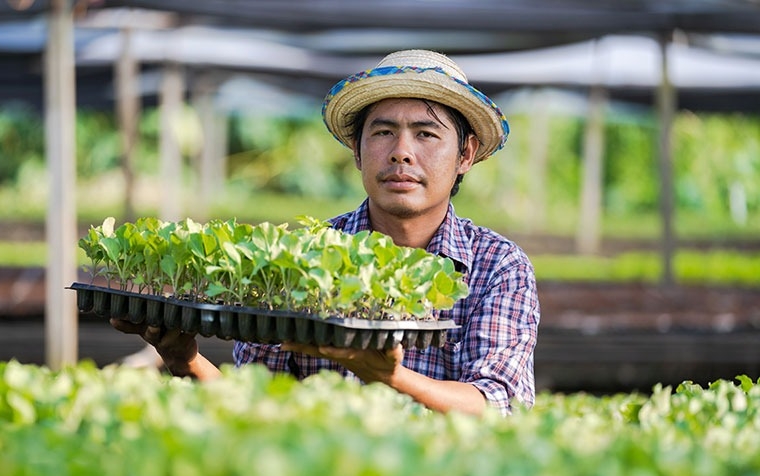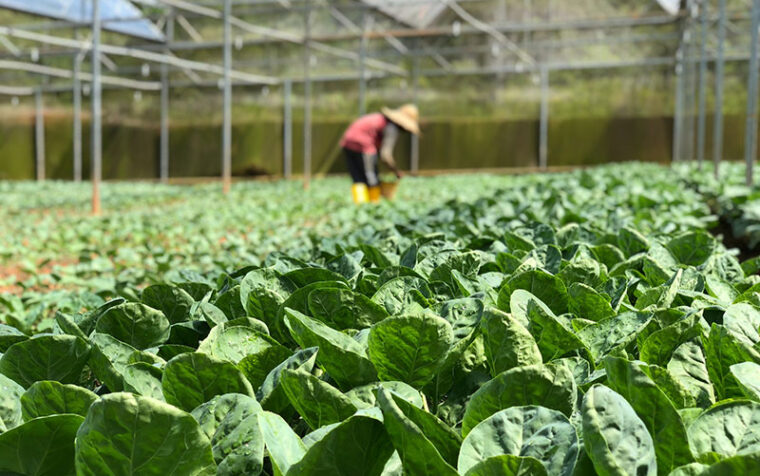
Export Programs
Federal export programs have proven to be tremendously successful and extremely cost-effective in helping to boost U.S. agricultural exports, to develop, maintain and expand U.S. agricultural markets, to protect and create American jobs, to strengthen farm income and to help offset the government-supported advantages afforded foreign competitors. Thousands of small to medium size enterprises throughout the country, including family farms, depend on export program activities for export markets.
Foreign Market Development Program
The Foreign Market Development Program (FMD), also known as the Cooperator Program, benefits U.S. agriculture by focusing funding to develop overseas markets for generic commodities.
For over 60 years, the program has fostered a partnership between the USDA and U.S. agricultural producers and processors, represented by nonprofit commodity or trade associations called Cooperators. These Cooperators form the majority of USAEDC’s membership.
USDA and the Cooperators, competitively selected annually by USDA’s Foreign Agricultural Service, pool resources to conduct overseas market development activities that contribute to the demand for agricultural commodities and address long-term foreign import constraints and export growth opportunities.
From rice to leather to cranberries, more than $24 million was invested in this program in FY 2021. Learn more about FMD here.
Market Access Program
USDA’s Foreign Agricultural Service (FAS) also administers the Market Access Program (MAP). Dollars from this program are competitively awarded to trade associations, cooperatives, trade groups and small businesses to share the costs of overseas marketing and promotional activities that help build commercial export markets for U.S. agricultural products.
From domestic and foreign trade shows to market research for small “Mom and Pop” style food businesses, MAP funds are used on efforts that increase customers for both generic and branded U.S. products.
MAP is one of the few tools U.S. agriculture has to compete in the international marketplace, and is even more important today as our competitors continue to use their considerable financial resources to gain market share. Learn more about MAP here.
Emerging Markets Program
The Emerging Markets Program (EMP) provides funding for technical assistance activities to promote exports of generic U.S. agricultural commodities and products to countries that have potential to be viable commercial markets. Competitively funded for-profit, non-profit, and government entities use EMP funds to conduct activities such as business workshops and feasibility studies. The list of “emerging market” countries is updated in the annual notice of funding availability.
Learn more about EMP here.
Regional Agricultural Promotion Program
The Regional Agricultural Promotion Program (RAPP) was established in 2023 to help U.S. producers maintain and develop markets for their agricultural products. USDA has provided $300 million in funding for the first year of the program, which will support projects that enable exporters to break into new markets and increase their share in growth markets.
RAPP is a $1.2 billion program in total that is made possible through the Commodity Credit Corporation. Those funds will be made available over the course of five years to non-profit U.S. agricultural trade organizations, non-profit State Regional Trade Groups, U.S. agricultural cooperatives, and state agencies conducting approved market development work to increase exports of U.S. agricultural commodities and products.
Learn more about RAPP here.
Quality Samples Program
The Quality Samples Program (QSP) helps potential customers discover the quality of American agricultural products. Processors and manufacturers export commodity samples with included technical guidance on how to use the product. The processor or manufacturer is then reimbursed by the USDA for procurement and transportation costs.
Learn more about QSP here.

Cochran Fellowship Program
The Cochran Fellowship Program (CFP) is administered by USDA FAS. It provides U.S.-based agricultural training opportunities for international public and private sector senior and mid-level specialists and administrators who are concerned with agricultural trade, agribusiness development, management, policy, and marketing. Learn more about the CFP here.
Technical Assistance for Specialty Crops
Establishing new trading relationships come with many pest and disease issues that could threaten the export of U.S. specialty crops (fruits, vegetables, nuts, etc.) The Technical Assistance for Specialty Crops (TASC) program helps U.S. organizations address sanitary, phytosanitary and technical barriers through the administration of seminars, pest and disease research, and field surveys. These funds benefit an entire industry rather than a specific brand. Learn more about TASC here.
Export Credit Guarantee Program
USDA FAS administers credit guarantees for commercial financing of U.S. agricultural exports. This program encourages exports to buyers in developing countries where credit is necessary to maintain or increase U.S. sales, but is not readily available. Learn more here.
Complementary Market Programs
Trade Capacity Building
Trade capacity-building (TCB), or trade-related technical assistance, supports U.S. trade policy objectives by enhancing developing countries’ ability to trade. TCB activities strengthen other countries’ agricultural institutions and regulatory systems, encourage compliance with international norms, and foster adoption of U.S. approaches to agricultural policy and regulatory procedures. View a database with all trade-related assistance by country and type here.

International Food Aid
The U.S. federal government helps provide U.S. agricultural commodities to assist millions of people in needy countries through direct donations and concessional programs.
Administered by USDA
- Food for Progress (FFP)
- McGovern-Dole Food for Education Program
- Local and Regional Food Aid Procurement Program
Administered by the U.S. Agency for International Development (USAID)
Shared Administration
Borlaug International Agricultural Science and Technology Fellowship Program
This program helps developing countries strengthen sustainable agricultural practices by providing short-term scientific training and collaborative research opportunities to visiting researchers, policymakers and university faculty while they work with a U.S.-based mentor. Learn more about this Fellowship Program here.

